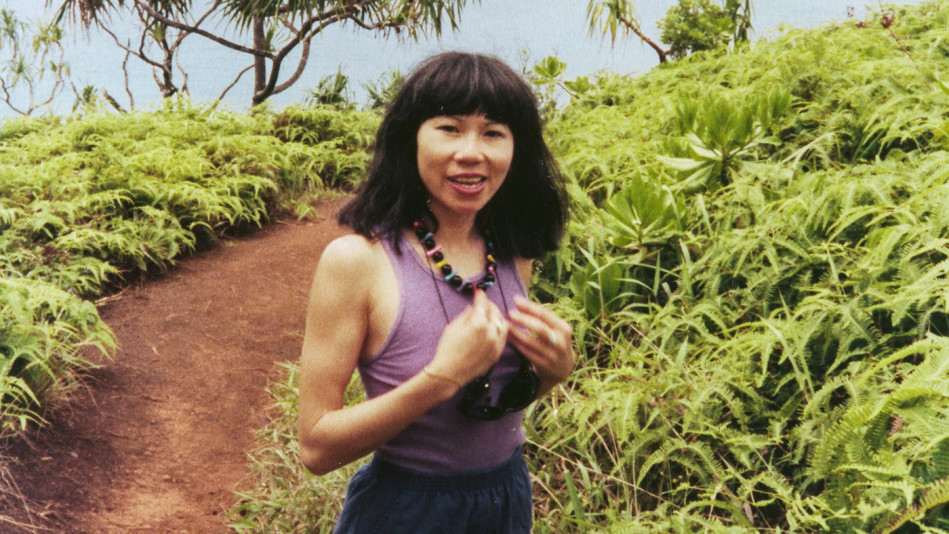Amy Tan was 15 when her world disintegrated.
“My brother was dying and then my father was dying,” she told the Television Critics Association . “My mother became a little unbalanced … . She and I had many arguments.”
In a six-month stretch, she lost two people to brain cancer; she was soon whisked from California to Switzerland by her mother, who had known previous depths of despair.
Tan, 69, has told versions of these stories often – in “The Joy Luck Club,” which became a best-seller when she was 36 (shown here) in other novels and in non-fiction. Now they’re in an intriguing PBS documemtary Monday (May 3). But alongside all the agony, there’s also a surprising layer of fun.
This is the same Tan who joined other authors – including humorists Dave Barry and Matt Groening – for a makeshift rock band. “I discovered … you don’t always have to take yourself seriously,” she said. She dressed wildly, sang loudly and found that “the camaraderie of a lot of people who weren’t necessarily top musicians would enable us to explore a different side of us.”
That fun side was always there, she said, even amid the pain. “My mother was a very funny person. Amidst all that she did that was dramatic and histrionic and sad, she also had a lot of humor.”
Typical, perhaps, was one long car ride. “My mother wanted to keep driving and she said, ‘Let’s get in an argument so I can stay awake.’ We both knew it was funny.”
The documentary was molded by someone who knew that joy and pain can co-exist.
James Redford grew up comfortably, the son of Robert Redford. He made movies – scripted and documentaries – that drew awards and nominations at film festivals. But he’d also had longtime health issues. “There was a a good chance he was going to die … before this was even finished,” Tan said.
Still, said Michael Kantor, producer of PBS’ “American Masters” series, he “became obsessed with this story. I heard the other day from his wife that when they got in the car, they would only listen to Amy’s audio books …. He was immersed in it.”
He died of cancer, at 58, in October. Now his film – “Amy Tan: Unintended Memoir” – debuts from 9-11 p.m. Monday, under the “American Masters” banner. “Amidst all the trauma,” Kantor insisted, “this is a feel-good movie.”
That trauma goes back to China, where Tan’s grandmother had been a concubine and killed herself in front of her own daughter. That daughter (Tan’s mother) would later marry a pilot she described as “the bad man”; then she met a good-natured man who would later be both an electrical engineer and a Baptist lay minister. She spent three years in jail for adultery, then fled to America, where he was studying; they stayed without the legal documents.
Their three children had three half-sisters in China they didn’t know about. “I got to experience … the kind of secrets that immigrant families that are illegal will have,” Tan said.
She was groomed to be a doctor and a concert pianist. Eventually, she settled for a master’s degree in English and linguistics; she married and did profitable, if uninvolving, work. “I was a business writer, writing about things that didn’t matter to me – telecommunications, account management.”
A storyteller her entire life, Tan was 33 before she dared to try short stories. Three years later, “Joy Luck Club” became a best-seller. A recent PBS survey had it at No. 42 on the list of Americans’ all-time favorite novels … putting Tan a few notches ahead of Melville, Tolstoy and Hemingway.
“Joy Luck” offered fictionalized versions of two generations of women, including Tan’s mother. Her reaction “was the opposite of what you might imagine,” Tan said. “She wanted more books about her.”
So Tan kept writing – novels, essays, a memoir. She described lives – hers, her mother’s, others’ – that managed to mix some fun in with the deep despair.
